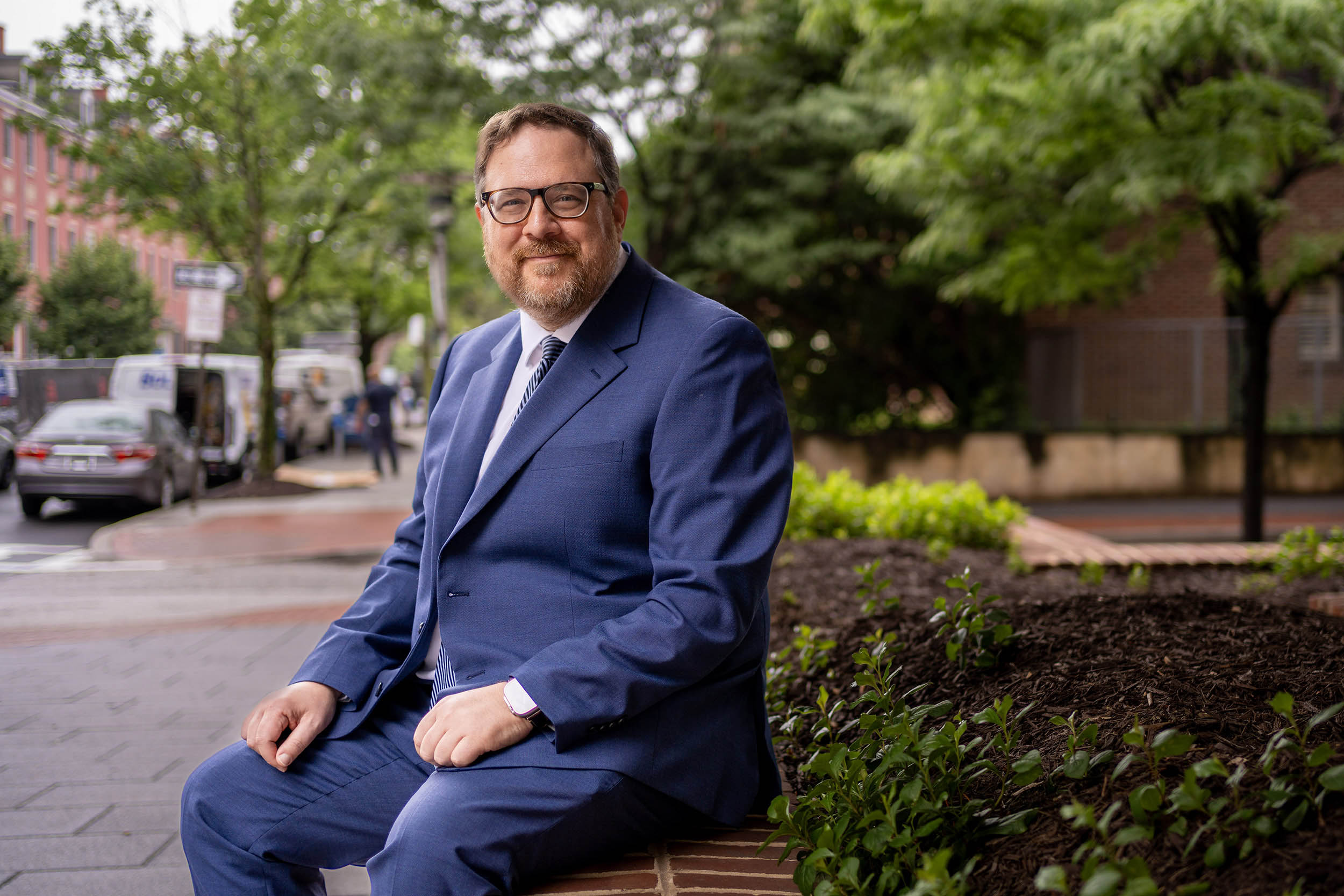Graduate Studies Faculty Elected to Leadership of National PA Organization
July 02, 2025 Angela Jackson
David J. Bunnell, MSHS, PA-C, assistant professor, will help lead the physician associate/assistant profession through a transforming health care landscape.
David J. Bunnell, MSHS, PA-C, assistant professor at the University of Maryland School of Graduate Studies (UMSGS), has been elected president-elect of the American Academy of Physician Associates (AAPA), a national organization shaping the future of the physician associate/assistant (PA) profession.
A seasoned clinician with a background in cardiology, cardiothoracic surgery, and surgical critical care, Bunnell recently completed a PhD in Health Professions Education at UMSGS, where he focused on PA competency. He also serves as faculty in the UMSGS Doctor of Medical Science program, where he helps prepare future PA leaders.
His election reflects his longstanding leadership in the profession and UMSGS’ commitment to developing clinician-scholars who drive transformative change. It also affirms UMSGS’ national role in aligning graduate education, professional advocacy, and innovation across the PA community.
We followed up with Bunnell to ask how he sees the future of the profession, and what advice he has for students hoping to lead the way.
What is the AAPA and why is its work important to the PA profession?
Established in 1968, the AAPA serves as the national professional society representing more than 190,000 PAs practicing across every medical and surgical specialty in all 50 states, the District of Columbia, U.S. territories, and the uniformed services. AAPA leads advocacy and education efforts to promote the profession and support the patients PAs serve. The organization is committed to advancing professional growth, excellence, and recognition while empowering PAs to enhance health care quality, accessibility, and efficiency through patient-centered care.
What does this appointment mean to you personally and professionally?
Personally, it’s a profoundly humbling moment. I have spent my career striving to serve patients and elevate the PA profession. This role is both an honor and a responsibility. Professionally, it represents an opportunity to help guide our profession through a period of rapid transformation in health care delivery, education, and technology. It also reflects the trust of my colleagues, which I don’t take lightly.
How does this leadership role align with your work at the University of Maryland School of Graduate Studies?
At UMSGS, I am privileged to work with graduate students preparing to shape the future of the PA profession. The School of Graduate Studies is committed to supporting and expanding PA education and advocacy through the PA program, the Doctor of Medical Science program, and the PA Leadership and Learning Academy (PALLA). My AAPA role directly complements this work by allowing me to advocate for policies and initiatives that advance patient care, elevate PA leadership, and promote health equity within the University and across the profession. Together, these efforts reinforce UMSGS’ national leadership in graduate education and health care innovation and ensure that tomorrow’s PA leaders are prepared to drive meaningful change across the profession and health care system at large.
What impact do you hope your service will have on students, colleagues, or the profession more broadly?
I hope to inspire current and future PAs to embrace their vital role as clinicians while also recognizing their potential as leaders and changemakers. This could mean advancing health equity, addressing workforce challenges, or integrating innovation like AI into clinical practice in ways that enhance care without compromising trust or professional judgment. I want PAs to feel empowered to shape the systems they work within.
Is there a particular initiative or issue you’re especially excited to champion during your term?
AAPA’s efforts are rooted in a forward-looking strategic plan focused on strengthening the PA profession and deepening its impact across the health care system. I’m especially excited to help advance key policy priorities that are critical to the profession’s future — including the modernization of PA practice laws, the removal of outdated supervision requirements, continued progress on changing the profession’s title to physician associate, and the growth of the PA Licensure Compact.
I am also committed to cultivating impactful, cross-sector partnerships that open new doors for PAs in clinical leadership, research, education, and efforts to advance health equity. My focus also includes enhancing the organization’s foundational strengths and energizing the PA community to lead in a rapidly changing health care environment.
Do you have a message for future or current PA students about leadership or professional engagement?
Absolutely: Don’t wait to be invited into leadership. Start where you are. Join a committee, raise your hand, speak up, ask questions, and share your perspective. We need all voices at the table bringing fresh ideas and perspectives. Remember, leadership is about service, integrity, and vision. If you’re passionate about your patients and your profession, you are already on the path. The most important step is choosing to show up and get involved.
Is there anything else you'd like to share with the University community about this new role?
This leadership position reflects and reinforces the University’s mission: “To improve the human condition and serve the public good of Maryland and society at-large through education, research, clinical care, and service.” I am honored to serve nationally and help elevate UMB’s impact across the PA profession and the communities we serve.